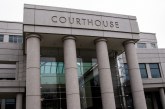 The Gang Injunction Trial is expected to go for at least two months, one week on, one week off. Judging by the first week, I would estimate it will be at least four months, possibly longer. The first week saw only three witnesses come forward, however, I would expect that to increase as time goes on and both sides develop some sort of routine or rhythm.
The Gang Injunction Trial is expected to go for at least two months, one week on, one week off. Judging by the first week, I would estimate it will be at least four months, possibly longer. The first week saw only three witnesses come forward, however, I would expect that to increase as time goes on and both sides develop some sort of routine or rhythm.
There are a lot of side issues still to be worked out. A big issue that needs to be resolved and will be is that of allowing hearsay testimony about unnamed defendants. I will also discuss in this column, the prosecution’s game plan thus far, and finally a bit commentary regarding a line of questioning on Tuesday pertaining to gang terms and slogans.
So when the DA’s office re-wrote the complaint, they named 32 defendants, the Broderick Boys as an entity, and then 1-400 “does.” Some of these defendants have been dismissed, others never responded and had a permanent judgment entered against them, a few of them are now the named defendants in the case.
But this is a civil case, meaning the rules are not those of criminal proceedings. For instance, there is no right to defense and therefore instead of court-appointed attorneys, the ones in this case are working pro-bono. During the course of the first week’s discussions, a number of individuals have been brought up, particularly by the police officers who testified Thursday and Friday.
The defense has objected on two grounds. First, the officers are testifying about not just what they saw but what these defendants told them. So there is an ongoing hearsay objection that will be resolved on Monday July 26 when the case resumes. The other problem here is that these unnamed defendants are not noticed in advance, they may enter Judicial notice of a particular case and announce the charges, but that is just surface knowledge.
The defense has no time or ability to examine the cases that the officer is bringing up in advance, there is no way they can prepare in advance about the particulars in the case. One thing that we have done, is look up the files for some of these cases. For example on Thursday, we discovered that one of the cases, the one involving Rainey Martinez and Robert Sanchez, the crime they plead to did not include a gang enhancement.
So the plaintiffs are using this as an example of gang crime, but they have no evidence that this was a gang crime from the pleadings. However, because the defense was not briefed in advance about cases that would come up, they might not have been able to have this information at hand in time to do an effective cross-examination.
This came up yesterday as well as Officer Wilson from the Sacramento Police Department’s Community Response team testified about a case involving three individuals Daniel Orosco, Andrew Pinzo, and Thomas Mendez. He went at length about the case. As it turned out, the DA did not file against one of them, the case was dropped against another, and only Thomas Mendez received charges and was found guilty of possession of cocaine and transporting it, the charge was dropped by the DA to a misdemeanor. And for that he received a gang enhancement.
So the Officer and the plaintiffs made a huge deal about what turned out to be a possession of drugs crime. The problem is that unless the defense gets notification, they do not have the ability to do research on the fly. They also had a huge number, tens of thousands of documents dropped on them that they have to go through, but again, if they do not know what will be discussed, it is impossible for them to prepare.
Moreover, should not these unnamed defendants have the right to defend themselves? Well because this is a civil case, no. So the DA’s office can lay out their case without the right to refute the case. They have said they will not add defendants, but you know at the end of the trial they will serve a lot of these people who will then have to prove, most of them without benefit of council, that they are not gang members.
Along similar lines, right now the prosecution has started their case strangely enough talking about very specific incidents. They have not put on their expert witnesses yet. They have yet to show anything about an overarching theme or shown anything about the structure of the gang.
The defense complained about this yesterday, and they were basically told by the Plaintiffs that they will decide their own order. In addition, Judge Kathleen White weighed in and said the same thing. She said this was not unusual in a large case like this, but that the plaintiffs will have the burden of tying everything together at the end.
However, there are risks to doing it this way. First, the defense has filed ongoing objections to the use of hearsay testimony and also the question of relevance. This has made the process extremely tedious. Yesterday Jay Linden, the Deputy District Attorney, became openly frustrated at the process – and understandably so. Judge White did explain however that the defense had legitimate issue and objections, they have the right to make them, and until these are resolved, they need to note their objections because when she rules on the rules of evidence, she needs to know what might be thrown out.
Some of this could be avoided had the DA chosen to start in a broader more overarching manner, but Mr. Linden explained that he thought if he did that they would object on foundational issues. So it is what it is. It makes it difficult to follow and will make it difficult for Judge White to put all of the pieces together at the end.
Finally, and here I will be more critical of the plaintiffs, when the DA was examining Thomas Cedillo, Ryan Couzens asked him if he knew was “SK” meant and when he did, he tried to imply that was evidence of knowledge about the gang.
The play of the week happened when Mr. Couzens was asking Mr. Cedillo if he knew what “SK” meant and he responded “scrap killer.” Mr. Couzens must have thought he was onto something because he virtually jumped out of his pants to ask him how he knew that and he said the Discovery Channel and then “Gangland.” As we reported on Wednesday, the explanation was plausible given some of the episodes we viewed.
But talking to a number of people, even young people in affluent and suburban Davis, SK and “scrap killa” are actually fairly well-known and have made their way into colloquial and cultural terms. A mere google of the term “scrap killa” will bear that out -including music and videos.
In a way, you have a cultural divide going on here as well, with the DA’s office not necessarily being steeped in the hip hop culture which has made these terms and symbols popular to a much wider audience.
The bottom line here is that prosecution ought to be a bit more cautious about making those kinds of assertions when it seems like some of these activities that they associate with gangs are actually more broadly practiced.
The more legal point will be the burden of tying together Norteno activity to a specific group operating out of West Sacramento that represents a clear public nuisance, but that is a broader issue that will have play out over the course of the trial.
—David M. Greenwald reporting





dpd: “So the plaintiffs are using this as an example of gang crime, but they have no evidence that this was a gang crime from the pleadings. However, because the defense was not briefed in advance about cases that would come up, they might not have been able to have this information at hand in time to do an effective cross-examination.”
The defense on rebuttal can refute the testimony.
dpd: “However, there are risks to doing it this way. First, the defense has filed ongoing objections to the use of hearsay testimony and also the question of relevance. This has made the process extremely tedious. Yesterday Jay Linden, the Deputy District Attorney, became openly frustrated at the process – and understandably so. Judge White did explain however that the defense had legitimate issue and objections, they have the right to make them, and until these are resolved, they need to note their objections because when she rules on the rules of evidence, she needs to know what might be thrown out.”
If the DDA chooses to conduct his case without setting out the “overarching theme” as you put it, the DDA has to put up with all defense objections, which the judge duly noted. There is always quite a bit of strategy involved in trials, whether they are civil or criminal. And strategies can backfire…
dpd: “In a way, you have a cultural divide going on here as well, with the DA’s office not necessarily being steeped in the hip hop culture which has made these terms and symbols popular to a much wider audience.”
Ultimately the DA has to prove its case – and tie up all the threads of evidence into a coherent theory. I will be interested to see how they are going to get around the hearsay problem tho…
I agree with your comments, other than the first one, I think the defense does have a disadvantage unless forewarned about the unnamed witnesses in advance. There are remedies to it, but I sense the prosecution has a tactical advantage here.
A good defense attorney can do a lot of damage on rebuttal…
I think you had to be there to see what it was like.
“The Gang Injunction Trial is expected to go for at least two months, one week on, one week off. Judging by the first week, I would estimate it will be at least four months, possibly longer. The first week saw only three witnesses come forward, however, I would expect that to increase as time goes on and both sides develop some sort of routine or rhythm.”
The strategy for the DA is to take as long as possible so the Judge will limit the Defense in calling their witnesses. This is a strategy the DA has used in other cases.